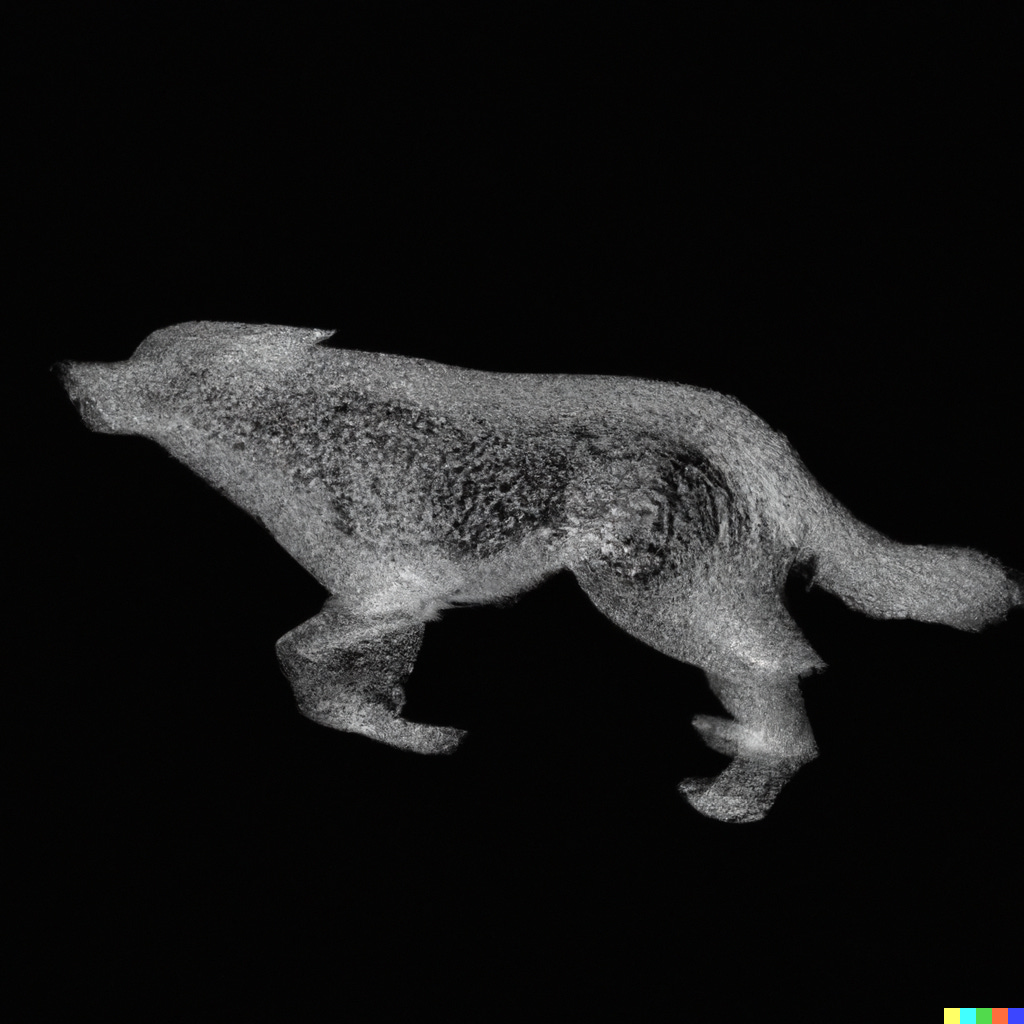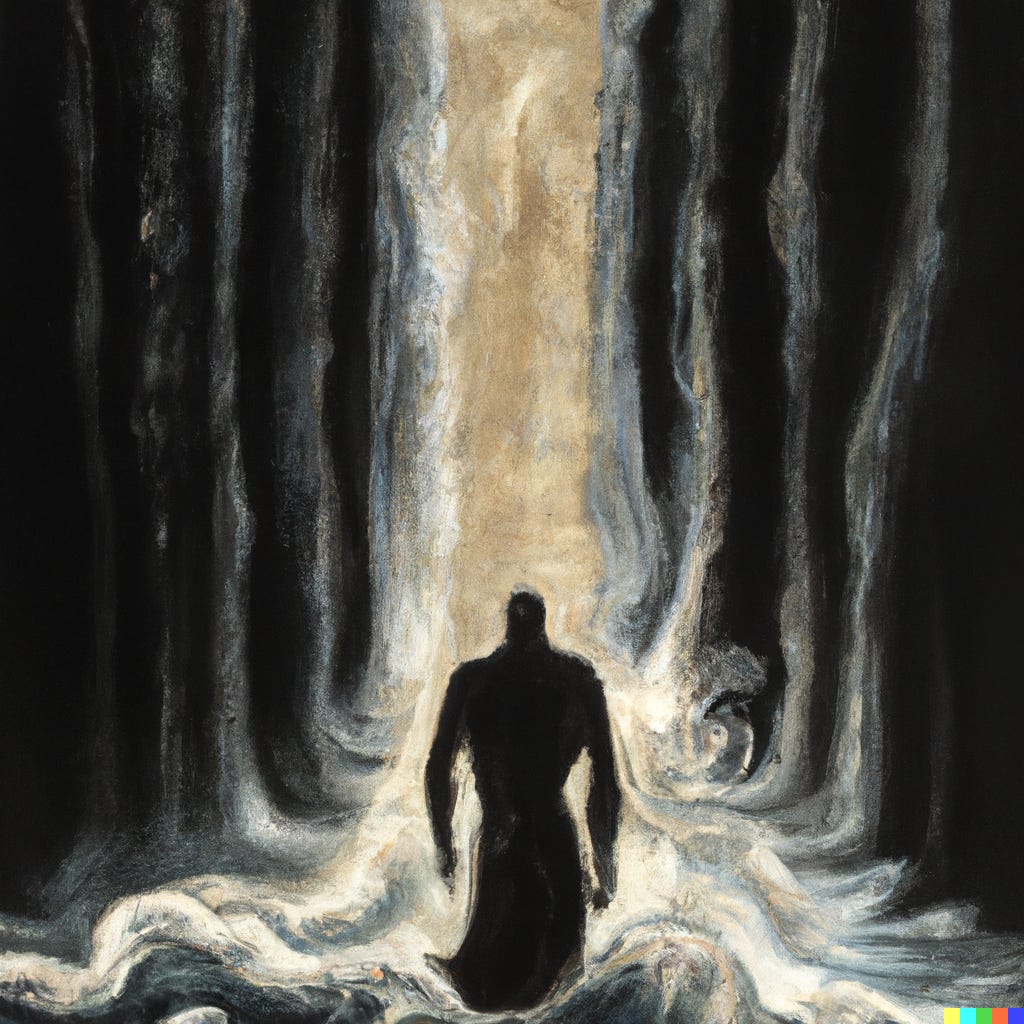Artificial and organic wolves
What do we gain and what do we lose from AI?
Until recently, AI was only a threat in the abstract.
It was a wolf many miles distant from the door. I could still wander in the woods heedlessly.
Then came ChatGPT. Now I try to sleep and I hear the wolf’s claws rasping on the door. What will this wolf take from us?
Maybe nothing. Maybe everything. Probably something in between.
To begin, I asked ChatGPT to write a comparative literary analysis of the short story Indian Camp by Ernest Hemingway. The result probably would have earned a B+ or better in any intro-level college lit class. And moreover, it was clear that ChatGPT had actually read the story, unlike most students.
From there, I tasked ChatGPT with writing an essay for doctors about the latest developments in GLP-1 agonists. These are diabetes drugs you’ve probably heard of (Ozempic, Wegovy) that are prescribed off-label for weight loss. The tone was a little off, but the facts were all there—facts that would have taken me hours to source.
Scratch, scratch.

The wolf had bitten off a sizable piece of my sense of self. I spent years becoming this person capable of synthesizing facts into something that was usually readable and occasionally elegant. Did any of that matter now that AI could do it faster and cheaper?
My livelihood also now had an expiration date. Writers have lost the monopoly on language. I knew this day would come, but I thought I had a longer time horizon. This is probably true for the spreadsheet and programming sets too. I’ve since asked ChatGPT to write code, script spreadsheets, and run basic calculations that are outside of my feeble mathematical capabilities.
I’m not a luddite asking you to destroy mainframes in the night. I can just as easily frame ChatGPT as a democratization of skill and information. This is akin to what the internet has done writ large. Those who could not write now can express themselves fluently. Imagine what a game-changer this could be for people in emerging countries and economies.
Yes, humanity may have gained a useful tool, but what have we lost? And what do we stand to lose? Technological solutions create technological problems, solved at human expense. How many humans will this problem cost?
I take some solace in this: While we may have lost our monopoly on language, we have not lost our humanity. We’re still here, sweating, suffering, loving, seeking, learning, and creating. The lines separating us from the replicants will become further blurred, and we may lose sole possession of these domains, but does that make them any less rich, mysterious, and beautiful?

I say further blurred intentionally. I’ve already had the Blade Runner moment, staring across the uncanny valley and realizing that it isn’t so wide. I was experimenting with DALL-E for another project and gave it this prompt: Oil painting. A wall of frigid water between a man and Eden.
The result is the image that you see above. It nearly moved me to tears. I’ve had similar moments experimenting with AI and generative music, like this moment in Something Authentic when the music and the machine seemed to understand the import of the Mexican doffing his hat to the tractor. All of us—the music, the robot voice, the phantom characters—were sharing a human moment.
How? Or, why did my mind and heart want it to be so?
When I saw the DALL-E art, I felt like Rick Deckard watching a dying Roy Batty lament the brevity, futility, and beauty of life. How could a replicant know and feel this? How could an algorithm come so close to knowing what is in my head, my heart, my soul? Could it feel it, too?
Batty was wolfish in his own way, howling as he hunts Deckard in those last few moments leading up to that climactic rooftop rain scene. It’s ultimately the end of something like a life that stops him—not Deckard. Of course, Deckard has yet to receive the real revelation, spoiler alert, that he differs from Batty only by dint of conditioning and programming.
With enough conditioning, a wolf can become a dog. But can the wolf be conditioned out of man? Do we pass our wolfishness to our dogs? To our children? To our technology?
Is the wolf outside the door, or is it inside?
Scratch, scratch.
